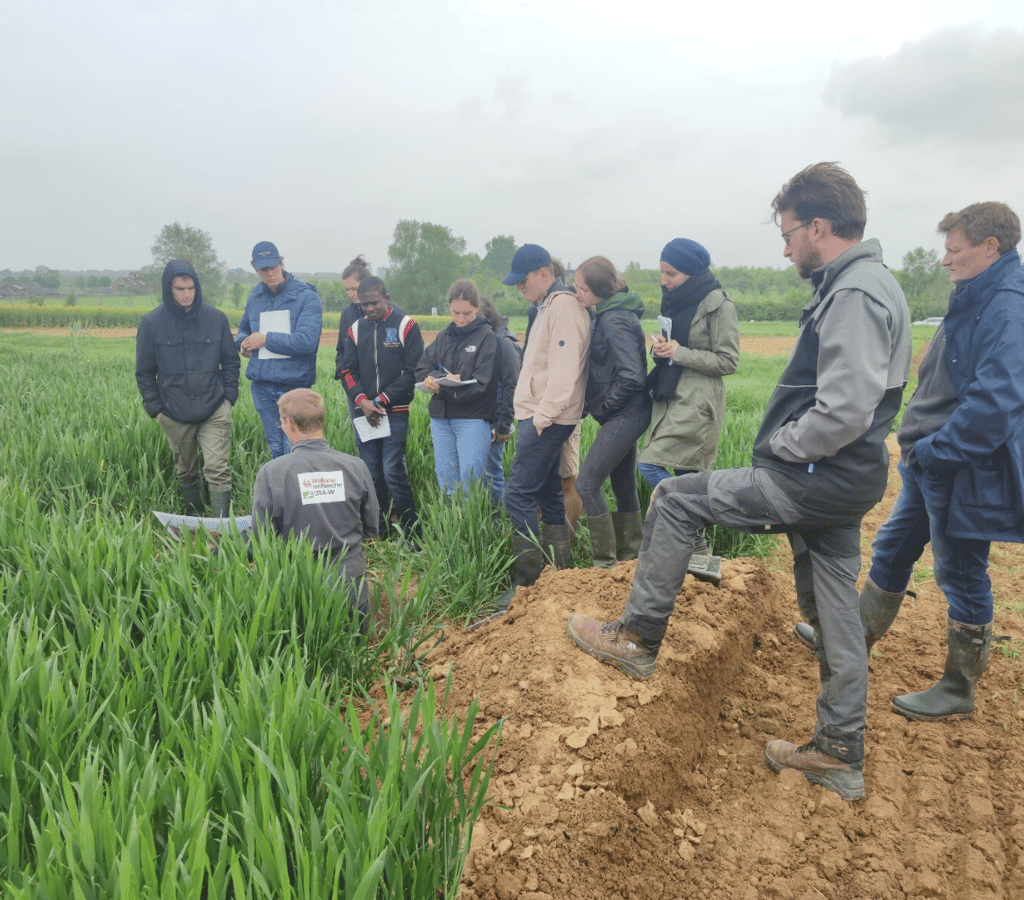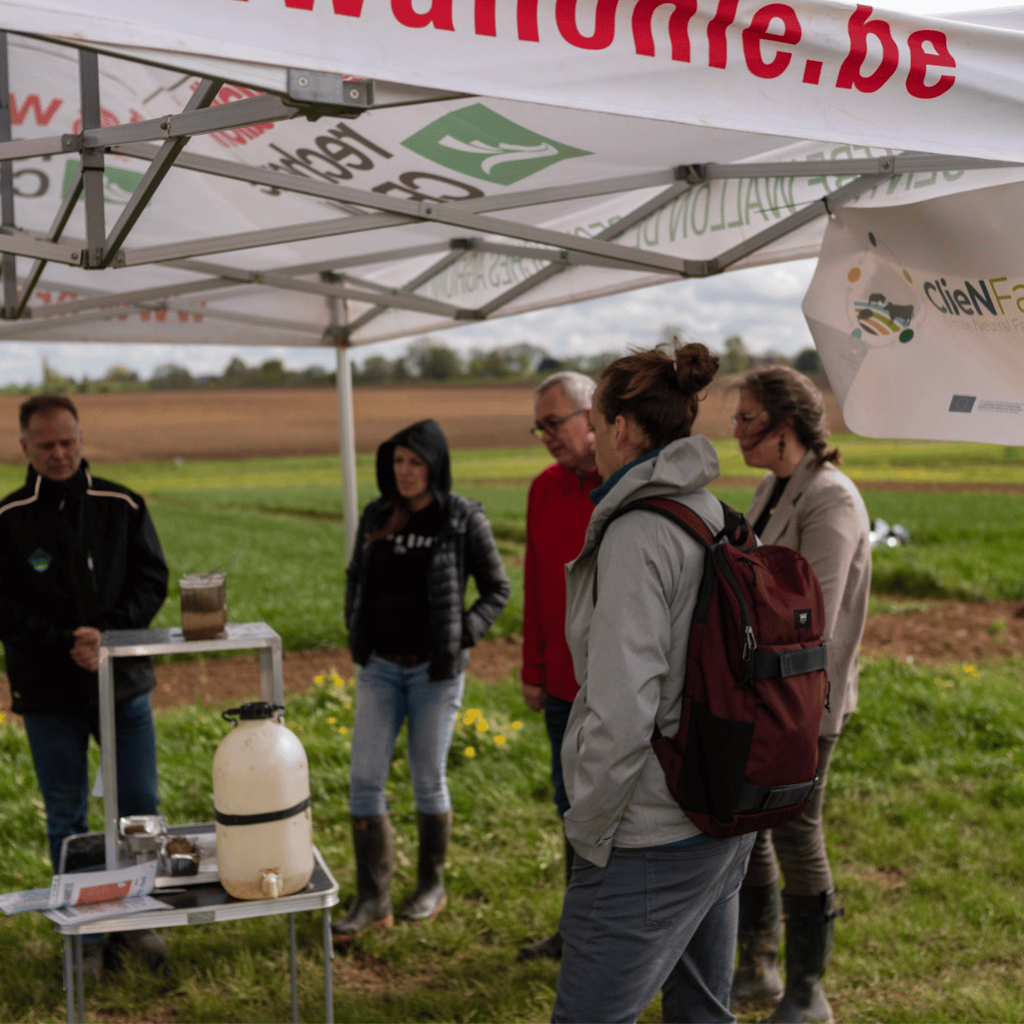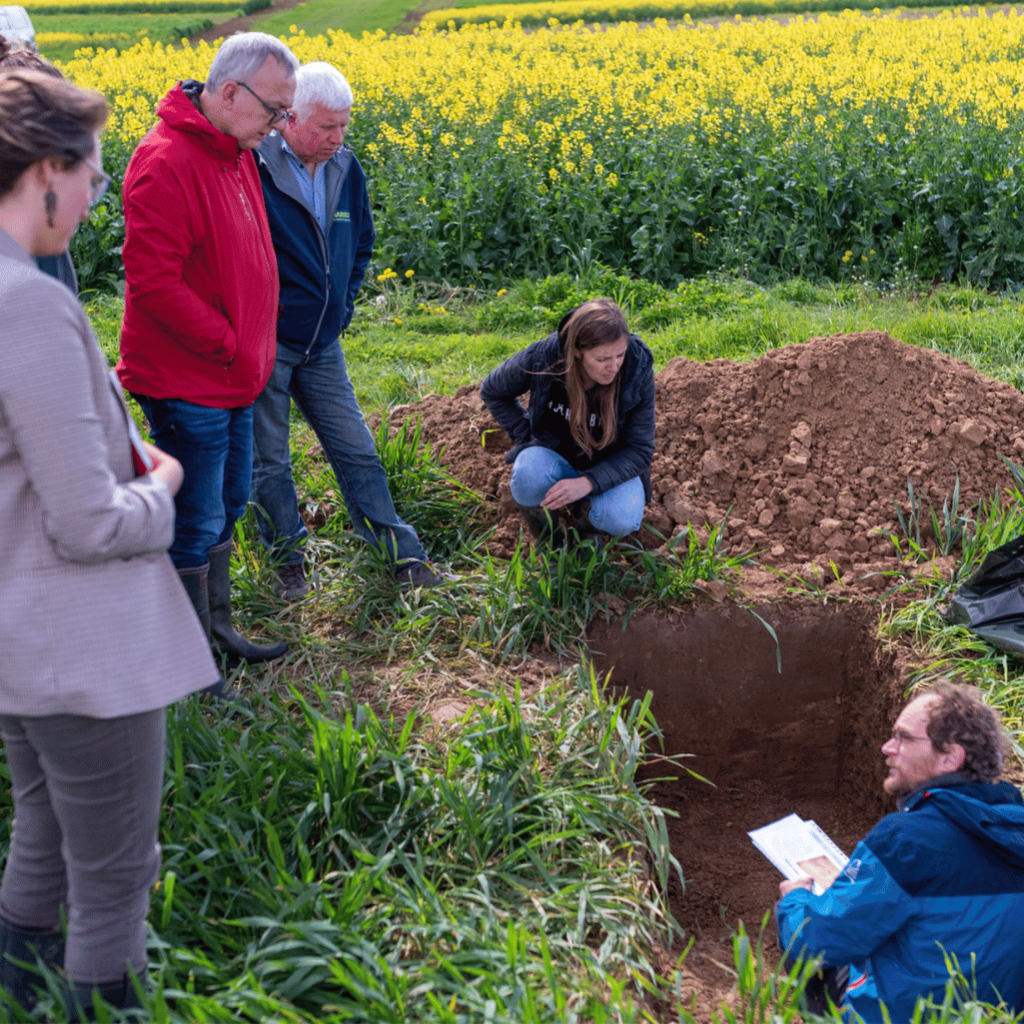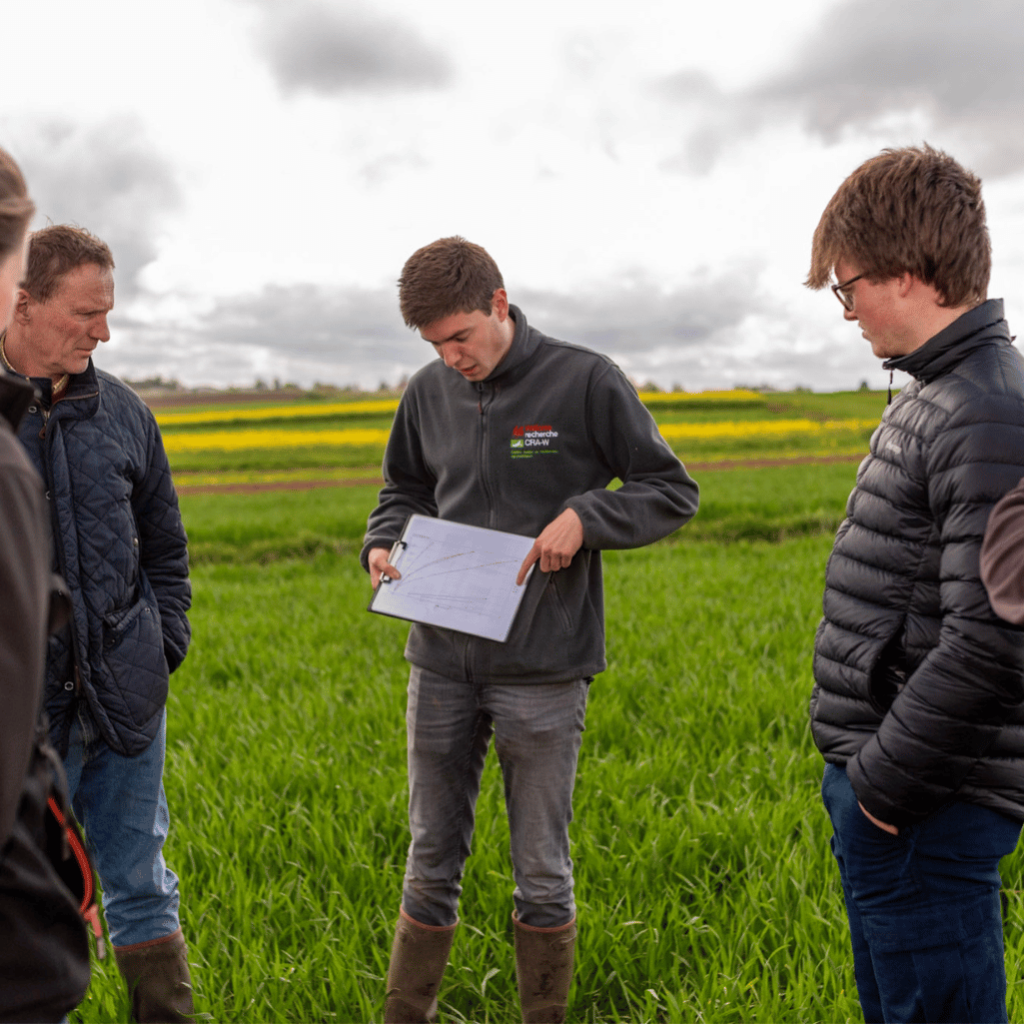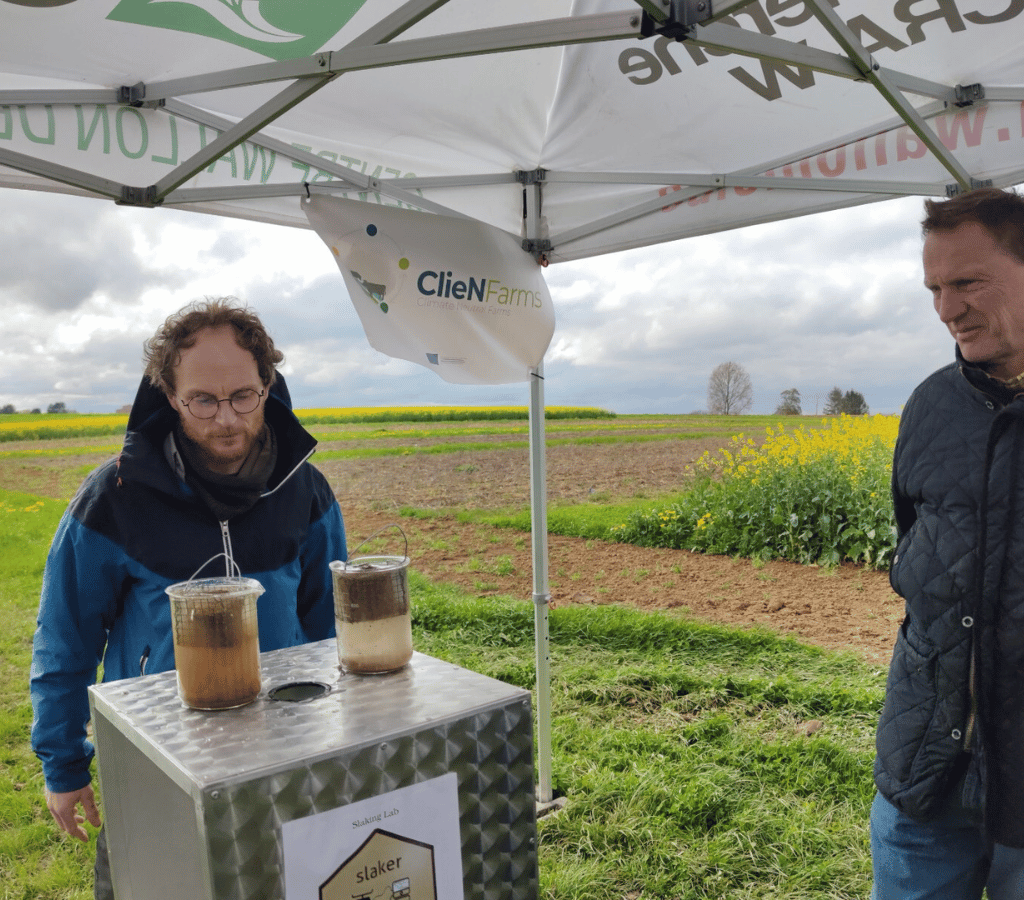Demo Event on the demonstation farm “SyCI” in Belgium I3S
As part of ClieNFarms and EJP Soil project, an event on the demonstration farm « SyCI » dedicated to soil protection and different practices for carbon storage took place in the Belgium I3S, on Friday 28 of April.
The demonstration farm for the Belgium I3S is the CRA-W long term experiment (LTE) « SyCI » aiming to test and compare, since 2019, innovative cropping systems (Sytèmes de Cultures Innovants). It addresses three major current issues: conservation of the soil capital (SOIL System) ; maximization of the reduction of greenhouse gas emissions (GHG system) ; maximization of the reduction of the use of synthetic inputs (pesticides, fertilizers) (ZERO PHYTO system). The Conventional system (CONV system) is the control.
During the event, the four systems were presented as well as the first results. In terms of carbon storage, the effect of tillage (ploughing vs no till) was challenged and debated. The effect of reduced tillage on the soil structural stability was illustrated with several supporting results (picture 1) which allows a reduction of soil erosion and carbon losses.
A series of other levers, such as increasing inputs of organic matter, maximising the use of cover crops or inserting temporary grass leys, were presented, as well as the benefits of combining several practices, such as permanent soil cover, crop diversification and reduced tillage, in terms of carbon storage and soil capital conservation. The opportunities and challenges for the use of Biochar were also addressed.
On SyCI platform, participants took part in various workshops to learn about different soil parameters:
– a slake test (structural stability test) and its interpretation;
– a Beerkan test (infiltrometry test) and its interpretation;
– a soil profile analysis.
Each of these workshops was carried out on a plot with wheat crop from the SOL system and from the CONV system (control system) from the Demonstration Farm, allowing comparisons between the two systems.
Around 30 farmers, advisors and researchers took part to the event, which led to rich exchanges, discussions and reflections on climate practices and future researches and how to communicate the results.
Based on the feedback received and the satisfaction questionnaire, the formula and content of the event were much appreciated, and participants wish to multiply this kind of meeting between researchers and field players.
The event was reiterated with 25 students two weeks later (May 15th) from the UCLouvain (Leuven Catholic University) and from the Haute Ecole Charlemagne Agro.
